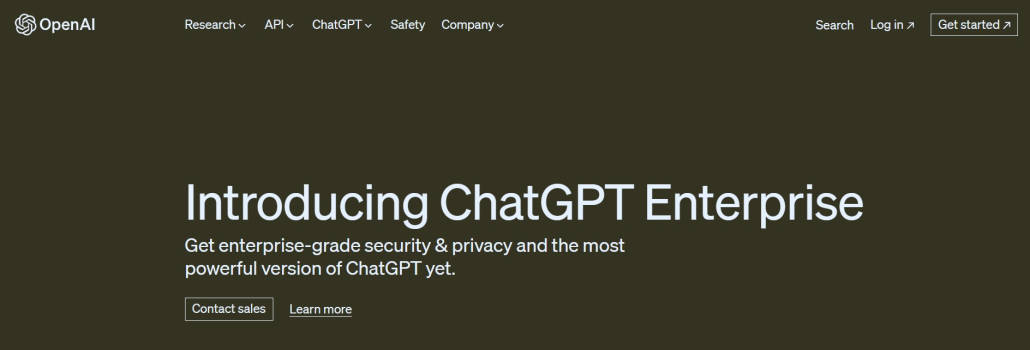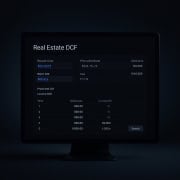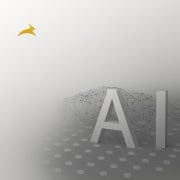Release of ChatGPT Enterprise and ChatGPT Teams – Implications for CRE (Updated Jan 2024)
If you’ve been reading A.CRE lately, you know that we see huge potential in generative AI (e.g. ChatGPT for language, Midjourney for images, etc). We’ve committed an entire section of our site to AI in commercial real estate, created a series exploring use cases for AI in CRE, and even keep a running list of AI tools we think will have an impact in real estate. Or put another way, we’ve been an advocate for safe adoption of this nascent technology.
However, one big barrier to adoption has been privacy and security of proprietary data. While these models can be trained on a real estate companies’ vast dataset, doing so risks exposing that highly valuable data. Thus, most companies have been in a wait-and-see mode. I believe that changes today.
Today, OpenAI announced the release of ChatGPT Enterprise, with robust security, high-speed GPT-4 access, and advanced customization to elevate work efficiency. It’s a leap toward an AI work assistant for real estate that boosts creativity while safeguarding company data. In this post, we’ll share details of this new AI product and discuss the implications it has for commercial real estate.
Update (January 2024): OpenAI recently launched ChatGPT for Teams. An alternative to ChatGPT for Enterprise, ChatGPT for Teams is a plan tailored for smaller organizations and businesses (I personally use it for my family) that seek to integrate ChatGPT into their team workflows but not commit to the Enterprise package. It is designed for a minimum of two users, with the option to add more as needed. The subscription plan is available at $25 per seat per month on an annual basis or $30 per seat per month on a monthly plan. Key features of ChatGPT for Teams include an admin console, a dedicated collaborative workspace, bulk member management, and admin roles. Similar to the Enterprise plan, OpenAI ensures that proprietary data and conversations within the workspace are NOT used for training purposes.

Today (Aug 28, 2023), OpenAI announced the release of ChatGPT Enterprise.
What is ChatGPT Enterprise?
ChatGPT Enterprise is the latest offering from OpenAI, designed specifically for enterprise-level applications. It was officially released on August 28, 2023, with a focus on robust security, customization, and scalability. The platform offers enterprise-grade security features that are SOC 2 compliant, ensuring that all conversations are encrypted both in transit and at rest. Importantly, the data and conversations are not used to train OpenAI’s models, maintaining data privacy.
- Not sure what ChatGPT or large language models are? Read how ChatGPT is used to improved productivity in CRE.
The platform also allows unlimited access to the GPT-4 model, which performs up to two times faster compared to the standard version. Users can benefit from advanced data analysis capabilities, formerly known as Code Interpreter. The system supports longer context windows, allowing for more extended conversations and data inputs with a 32k token context.
For ease of deployment across large organizations, ChatGPT Enterprise includes features like an admin console for bulk member management, Single Sign-On (SSO), and domain verification. It also provides an analytics dashboard to gain insights into usage.
The platform is available for immediate adoption, with more features expected to be rolled out in the near future, including options for smaller teams and more specialized tools for various roles within an organization.
So, what are the issues and opportunities in commercial real estate of this tech?
The Security Quandary: A Closer Look
Data security has long been a stumbling block for CRE firms contemplating the adoption of generative AI technologies like ChatGPT. The hesitancy isn’t unwarranted. Commercial real estate is a data-rich industry, and that data is fiercely guarded. Imagine the consequences if a competitor gained access to proprietary information on asset valuations, tenant relationships, investment strategies.
With the public version of ChatGPT, there’s a persistent concern that user prompts could be used to train the model. This is more than just a theoretical risk; it’s a real issue that could inadvertently expose confidential data. Given that these models learn from the data they interact with, the chance of revealing sensitive information, albeit slim, has been enough to keep many CRE firms at arm’s length.
ChatGPT Enterprise changes the equation by promising that a business’ data stays its own. It doesn’t use prompt conversations for training, and with SOC 2 compliance, the security measures meet industry standards. This could be the assurance that CRE firms have been waiting for—a way to leverage AI’s capabilities without sacrificing the sanctity of their data.

Image of a real estate analyst’s desk. Produced using generative AI: the Stable Diffusion model via DreamStudio.
Data Integration: Opportunity and Challenge
The prospect of ChatGPT Enterprise seamlessly syncing with a real estate firm’s data is compelling. We’re talking about faster decision-making, better collaboration, and advanced data analysis. But let’s not get ahead of ourselves. CRE data is often a messy mix of spreadsheets, databases, Argus files, CoStar exports, and ad-hoc records.
So, how well can an advanced tool like ChatGPT Enterprise handle this unstructured landscape? Features like “advanced data analysis” and “32k token context windows” are fantastic, but their effectiveness is conditional. Garbage in, garbage out, as the saying goes.
Here’s where opportunity knocks for CRE professionals: data organization. The ability to clean, structure, and standardize data will be a high-demand skill. The ability to implement AI into a CRE firm will be gold. If you’re looking to ride the AI wave in CRE, being a data maestro will put you ahead.
In short, ChatGPT Enterprise offers powerful tools, but their real-world application hinges on the quality of your data. Before embracing this tech, firms need to assess their data readiness. The tool’s potential is big, but it’s not a magic wand.

Source: ChatGPT Enterprise release
Winners and Losers in CRE from Gen AI
The advent of ChatGPT Enterprise sets the stage for a new dynamic in CRE: the formation of clear winners and losers in the race to adopt generative AI. On one side, you have firms sitting on a gold mine of proprietary data. Ironically, these are often the behemoths that are slowest to adapt to new technologies. Their hesitancy isn’t just a missed opportunity; it’s a liability.
On the flip side, you’ve got smaller, nimble firms that are quick to adopt new tech but may not have the same depth of data. The real winners in this scenario are the firms that can strike a balance—those that have both the data and the agility to adapt. These firms will leverage ChatGPT Enterprise to its fullest, gaining insights at speed and scale that others can’t match.
The losers? Those who resist change, relying solely on intuition and traditional methods. In a world where data-driven decisions are becoming the norm, flying by the seat of your pants is a risky strategy. Similarly, firms that lack the proprietary data to inform AI models will find themselves increasingly sidelined.
The message is clear: adapt or get left behind. In the context of ChatGPT Enterprise, having a wealth of data is a potent advantage, but only if you’re agile enough to use it. The stakes are high, and the divide between the tech-savvy and the tech-averse is widening.
Frequently Asked Questions about ChatGPT Enterprise, ChatGPT Teams, and Their Implications for CRE
What is ChatGPT Enterprise?
ChatGPT Enterprise is a version of OpenAI’s platform designed for large organizations. It offers unlimited GPT-4 access, SOC 2 compliance, data encryption, and no usage of company data for training. Features include longer context windows (32k tokens), advanced data analysis, and admin tools like SSO and usage analytics.
What is ChatGPT for Teams and how is it different from Enterprise?
ChatGPT for Teams is a lighter-weight alternative to Enterprise for smaller organizations. It starts at $25/user/month (annually) and includes admin controls, shared workspace, and no training on your team’s data, just like Enterprise. It’s designed for teams of two or more who need collaboration features but don’t require enterprise-scale tools.
Why is data privacy a critical concern in CRE AI adoption?
CRE firms handle sensitive and proprietary data—tenant relationships, valuations, lease agreements. The risk of this data being used to train public models has been a major barrier to AI adoption. With ChatGPT Enterprise and Teams, data is not used for training, addressing this concern head-on.
How could ChatGPT Enterprise improve CRE workflows?
It enables faster decision-making, collaborative modeling, and enhanced document summarization. Analysts can extract insights from leases, synthesize large datasets, or draft memos—all securely and efficiently, thanks to tools like advanced data analysis and long input capacity.
What CRE firms will benefit most from ChatGPT Enterprise?
Firms that combine deep proprietary data with agility in adopting new technology stand to gain the most. These firms can apply AI to underwriting, lease abstraction, and reporting with unmatched speed and insight.
What data preparation is needed to benefit from AI tools like ChatGPT Enterprise?
Success with AI hinges on data readiness. Firms must clean and structure their lease files, financial models, and tenant info. As the post notes, “the ability to implement AI into a CRE firm will be gold” for those who master data hygiene and integration.
What security standards does ChatGPT Enterprise meet?
ChatGPT Enterprise is SOC 2 compliant. It encrypts all data in transit and at rest. Importantly, conversations and user data are not used to train OpenAI models, ensuring the highest standards of data privacy.
What are the risks of ignoring generative AI in CRE operations?
Firms that ignore generative AI risk falling behind in efficiency, insight generation, and talent attraction. As the post states, “flying by the seat of your pants is a risky strategy” in a world moving toward data-driven decision-making.
How does ChatGPT Enterprise shape the future competitive landscape in CRE?
It widens the gap between tech-savvy adopters and traditional holdouts. Firms that adopt and integrate AI early will outpace competitors in insight speed, client service, and operational scale. The divide between winners and laggards is set to grow.








